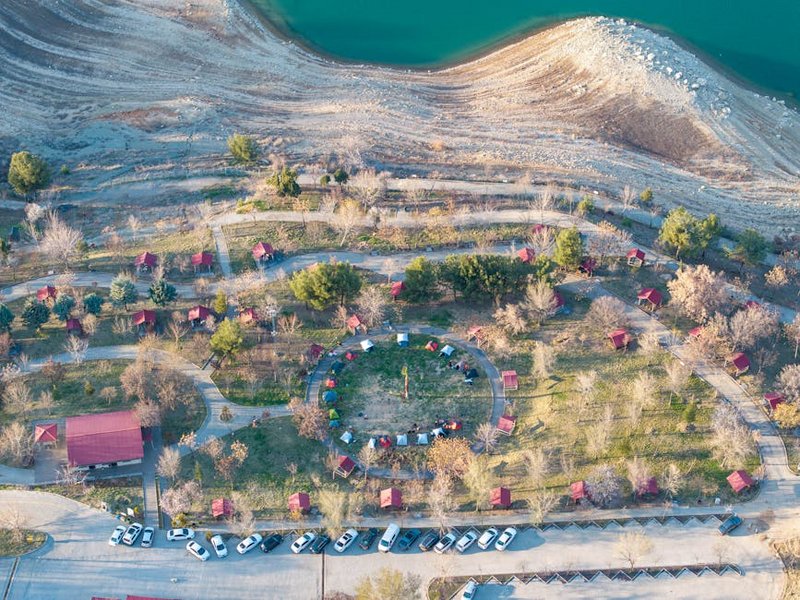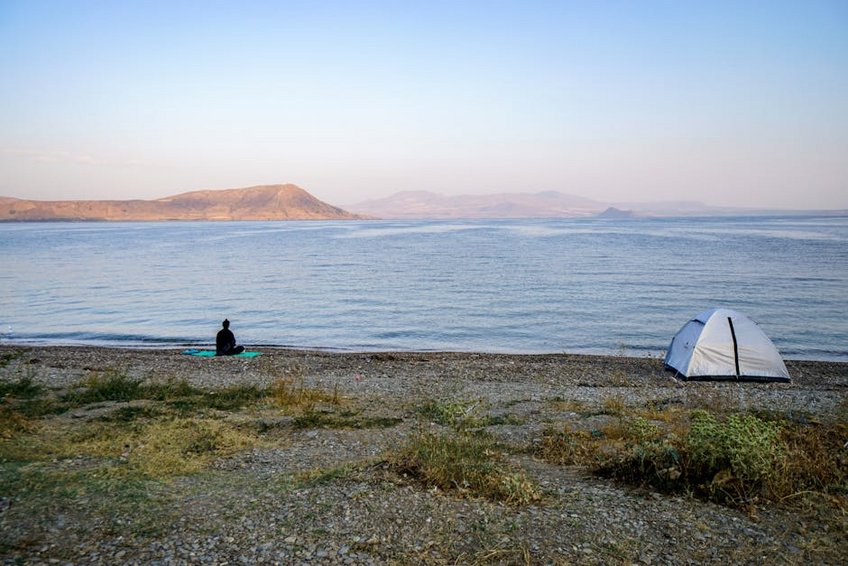Hidden Camping Lakes in Turkey
Turkey, a country where East meets West, offers far more than its famous beaches and bustling bazaars. For the adventurous soul, the true magic lies in its hidden camping lakes, secluded bodies of water tucked away in majestic mountains, serene forests, and dramatic valleys. Discovering these hidden camping lakes in Turkey is like unlocking a secret level of travel, offering unparalleled tranquility and a profound connection with nature. You’ll trade crowded tourist spots for the gentle lapping of water against a secluded shore and the spectacular canvas of stars unobscured by city lights. This guide will unveil these precious gems, providing you with all the essential knowledge to plan your own off-the-beaten-path aquatic escape, from securing the perfect spot to understanding the unique ecosystems that make each of these hidden camping lakes in Turkey so special.
Hidden Camping Lakes in Turkey – Essential Information
Before you pack your tent and head into the Turkish wilderness, understanding the landscape of these aquatic hideaways is crucial. These lakes are not commercial campgrounds; they are natural treasures often located within national parks or remote rural areas. Access can vary from a well-marked forest trail to a more challenging hike, meaning preparation is your best friend. The rewards, however, are immense: crystal-clear waters perfect for a refreshing swim, incredible birdwatching opportunities, and campsites that feel entirely your own. The experience of waking up to mist rising off a mirror-still lake, surrounded by pine-scented air, is what makes seeking out these hidden camping lakes in Turkey an unforgettable adventure for any nature lover.
What Defines a “Hidden” Lake – Location and Access
- Secluded spots often require a drive on unpaved roads followed by a hike, ranging from 15 minutes to over an hour, ensuring they remain crowd-free.
- They are typically found within protected areas like national parks (e.g., Lake Borabay in Amasya) or in remote highland regions (yaylalar) far from major cities.
- Facilities are minimal to non-existent. You must be self-sufficient, carrying in all your water, food, and supplies, and practicing strict Leave No Trace principles to pack out all waste.
- Budget Traveler ($150-250 for a week): Uses existing gear, shops at local markets for food, focuses on free lakes with easy access, and uses public transport to the nearest town before a taxi to the trailhead.
- Mid-Range Explorer ($400-600 for a week): Rents quality gear like a reliable tent and sleeping bags, rents a 4×4 vehicle for easier access to remote spots, and includes a few meals at local village restaurants.
- Luxury Adventurer ($800+ for a week): Invests in high-end, lightweight camping equipment, hires a local guide for exclusive spots and cultural insight, and stays in a boutique hotel before and after the camping leg for comfort.
- Official Republic of Turkey Ministry of Culture and Tourism Portal
- Lonely Planet Turkey Travel Guide
Key Details – Climate and Environment
The environment around these lakes can be surprisingly diverse. While the coastal regions enjoy a Mediterranean climate, many hidden lakes are located at higher altitudes where nights can be chilly even in summer. You might be camping amidst dense pine forests near the Black Sea or in a more arid, rocky landscape in Anatolia. This variety means your packing list must be adaptable. Mosquito repellent is essential for lakes in forested areas, while a warm sleeping bag is non-negotiable for mountain lakes. Researching the specific microclimate of your chosen lake will ensure you’re comfortable and prepared for whatever nature presents.

Hidden Camping Lakes in Turkey – Planning Your Trip
A successful trip to these remote paradises hinges on meticulous planning. Unlike a standard holiday, spontaneity has less room here. Your planning should cover the ideal season to visit based on your tolerance for heat or cold, a realistic budget that accounts for gear rental if needed, and a thorough checklist to ensure nothing is forgotten. This isn’t just about finding a lake on a map; it’s about preparing for a self-reliant adventure. You’ll need to consider how you’ll purify water, what meals are easy to cook on a camp stove, and how to navigate potentially tricky access roads. This forethought transforms a potentially challenging trip into a smooth and profoundly rewarding experience amidst some of Turkey’s most stunning landscapes.
Best Time to Visit Hidden Camping Lakes
The prime season for camping at these lakes is from late May to late September. During this window, the weather is most stable, with warm days ideal for swimming and exploring. July and August offer the warmest water temperatures but can also be the busiest (relatively speaking) and bring more insects. The shoulder months of May-June and September are often perfect for those who prefer cooler nights and fewer bugs. It’s critical to avoid the rainy seasons in spring and late autumn, as access roads can become muddy and impassable, and camping in wet conditions is far less enjoyable. Always check local weather forecasts right before your departure.
Budget Planning and Costs for a Camping Trip
Essential Preparation Checklist
Your packing list can make or break your trip. Beyond the obvious tent, sleeping bag, and mat, prioritize a reliable water filter or purification tablets, as lake water is not safe to drink untreated. A sturdy camp stove and fuel are essential for cooking warm meals. Pack layers of clothing, including a waterproof and windproof jacket, as mountain weather is notoriously changeable. Don’t forget a headlamp, a comprehensive first-aid kit, a power bank for your phone, and detailed offline maps or a GPS device. Finally, a good knife, fire-starting materials (where permitted), and a trash bag to pack out all your waste are non-negotiable for responsible camping.
Hidden Camping Lakes in Turkey – Top Lakes and Activities
Turkey’s diverse geography hosts a spectacular array of secret lakes, each with its own unique character and allure. From the crater lakes of ancient volcanoes to those nestled in lush highland meadows, the choice is vast. Your adventure could involve kayaking across glassy waters at dawn, hiking through untouched forests to reach your destination, or simply unwinding in a hammock with a book and the sound of nature as your soundtrack. Fishing enthusiasts might find trout in certain lakes, while birdwatchers can spot a variety of species. The activity is secondary to the setting; the real magic is in the immersion into a peaceful, natural world far removed from the daily grind.
Must-See Hidden Lake Highlights
Several lakes stand out for their breathtaking beauty and unique features. Lake Borabay in Amasya is a stunning crater lake surrounded by dense pine forests, often described as Turkey’s miniature version of Canada’s famed landscapes. Lake Sera in Trabzon, formed by a landslide, offers incredibly clear waters and lush greenery. For a more otherworldly experience, Lake Tuzla near Adana is a saline lake where you can float effortlessly, similar to the Dead Sea. Each lake provides a distinct backdrop for camping, photography, and pure relaxation, making them worthy destinations for any itinerary focused on hidden camping lakes in Turkey.
Hidden Gems and Local Favorites
Venturing beyond the most famous names leads to true solitude. Lake Karagöl in the Yedigöller National Park is a smaller, quieter alternative to the park’s more popular lakes, offering incredible reflections of the surrounding forest. In the Kaz Mountains, small, unnamed ponds and lakes provide ultra-secluded spots for those willing to explore with a good map. Locals often frequent highland lakes like those around the Kaçkar Mountains, where you might share the space only with grazing livestock and their herders. These spots require more effort to find but offer the ultimate reward: a sense of discovery and having a piece of paradise all to yourself.
Hidden Camping Lakes in Turkey – Practical Travel Information
Navigating the practicalities of reaching and enjoying these remote locations is a key part of the adventure. Your mode of transportation will greatly influence which lakes you can access. While major rental companies offer cars, for the most hidden spots, a 4×4 vehicle is highly recommended to handle rough, unpaved mountain roads. Accommodation options near these lakes are limited to small guesthouses in nearby villages, making camping the primary—and best—way to experience them. Understanding the local rules, from fire bans to camping permissions, is essential to ensure your visit is both safe and respectful to the environment and local communities.
| Category | Options/Features | Price Range (USD) |
|---|---|---|
| Car Rental | Economy sedan (for main roads), 4×4 SUV (for remote access) | $30-$80 per day |
| Nearest Accommodation | Village guesthouses (pansiyon), boutique hotels in larger towns | $40-$100 per night |
| Guide Services | Local guide for a day trip or multi-day trek to remote lakes | $50-$150 per day |


